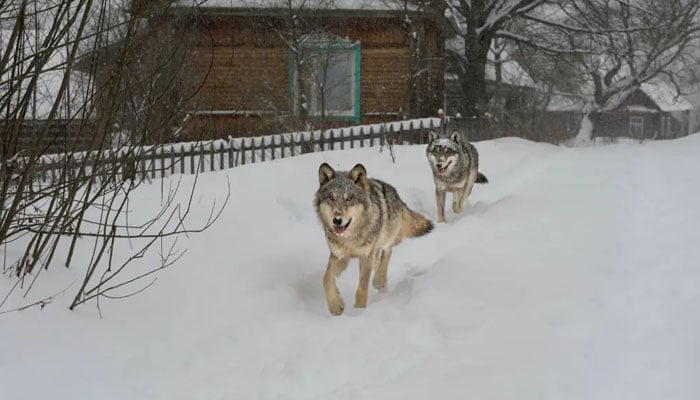How mutant wolves near Chernobyl Exclusion Zone can produce cancer cure?
Wolves at Chernobyl Exclusion Zone are said to have formed resistant genomes to fight cancer
Cancer-resistant genomes that mutant wolves, who wander the human-free Chernobyl Exclusion Zone, have created may hold the answer to assisting people in combating the deadly disease.
The highest radiation levels in the region have affected the wild animals, who have adapted to withstand the radiation after the world's worst nuclear accident occurred in 1986 when a nuclear reactor at the Chernobyl power station erupted, according to New York Post.
After the explosion sent radiation that caused cancer into the atmosphere, people left the region, and a 1,000-square-mile area was cordoned off to keep people from being exposed to the radiation any longer.
However, in the nearly 38 years following the nuclear accident, the region has been recovered by animals, including wolf packs that don't appear to be impacted by their long-term exposure to radiation.
Cara Love, an ecotoxicologist and evolutionary biologist working in Princeton University's lab under Shane Campbell-Staton, has been researching how mutant wolves have adapted to survive in their radioactive environment. She recently presented her research at the Society of Integrative and Comparative Biology's Annual Meeting in Seattle, Washington.
Love and her associates entered the Chernobyl Exclusion Zone in 2014 and fitted the wild wolves with GPS collars that contained radioactive dosimeters.
According to a press release issued by the Society of Integrative and Comparative Biology, they also extracted animal blood to study the animals' reactions to the radiation that causes cancer.
"With the specialised collars, the researchers can get real-time measurements of where the wolves are and how much radiation they are exposed to," Love said.
-
Lewis Capaldi details 'impact of Tourette' on his career
-
Christina Applegate struggles to leave bed amid multiple sclerosis battle
-
Demi Lovato bravely admits she is ‘not ashamed’ of having bipolar disorder
-
Can humans reverse aging? Harvard scientist predict revolutionary breakthrough
-
How Liam Payne’s death impacted awareness about mental health
-
Taylor Swift expresses how negative body comments triggered her
-
Lady Gaga details how eating disorder affected her career: 'I had to stop'
-
Celebrities who struggle with infertility












